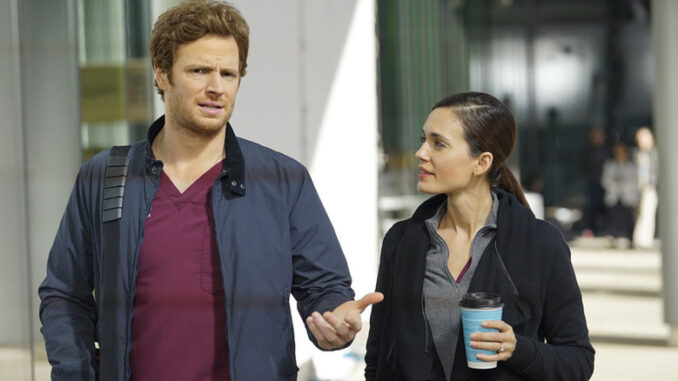
The Savior and the Shattered Symphony: Owens’ Injury in Grey’s Anatomy’s Shocking Med Season 11
Dr. Owen Hunt, the trauma surgeon with the perpetually haunted eyes and the savior complex, had always been a figure of unwavering intensity in the chaotic landscape of Grey Sloan Memorial Hospital. He was the man who stitched soldiers back together in war zones, the doctor who charged into burning buildings, the husband who fiercely loved and devastatingly lost. He was, in many ways, the epitome of the heroic archetype, always ready to pull someone back from the brink. Yet, even the most stalwart of saviors are vulnerable, a truth brutally exposed when Owen suffered a life-altering injury following the shocking events of Med Season 11, Episode 7. That moment, a confluence of shattered trust, broken promises, and a literal vehicle crash, marked not only a physical trauma but a profound shift in his identity and the dynamics within the already volatile Grey Sloan ecosystem.
The events leading up to the accident were a slow burn of resentment and betrayal. Owen, driven by his innate need to protect and fix, had become entangled in the complex web of his sister Megan’s return. Haunted by the years she spent presumed dead, Owen poured his energy into reuniting her with her son, Farouk. The intense emotional investment, coupled with his already strained relationship with Amelia, created a simmering tension that ultimately boiled over. Amelia, grappling with her own demons and wary of Owen’s tendency to over-extend himself, felt increasingly sidelined and unheard.
The revelation that Nathan Riggs, the man who had been intimate with Megan during her captivity, was now in a relationship with Meredith Grey further complicated matters. Owen, blinded by his desire to reunite Megan with her “happily ever after,” struggled to accept Meredith’s feelings. The emotional turmoil reached a crescendo when Owen, driving to deliver news to Megan, was involved in a devastating accident.
The crash wasn’t just metal and glass; it was a metaphor for the shattering of Owen’s idealized worldview. His role as the unwavering protector, the fixer of broken pieces, was suddenly rendered inadequate. He was the one broken, the one needing saving. The irony was stark and poignant. This man who dedicated his life to piecing others back together now faced the daunting task of rebuilding himself, both physically and emotionally.
The immediate aftermath was a scramble of medical intervention, a horrifying replay of countless surgeries Owen had performed. The familiar hum of machines, the frantic calls of the attending physicians, the palpable fear hanging in the air – it was a world Owen knew intimately, yet now experienced from the precarious position of the patient. Watching his colleagues fight to save him, witnessing the worry etched on their faces, forced Owen to confront his own mortality and the precariousness of his position.
The long road to recovery was not just about healing broken bones and addressing internal injuries. It was about grappling with the psychological scars left by the accident and the events that precipitated it. The physical limitations forced him to confront his reliance on his physical strength and his identity as a man of action. He could no longer charge into danger, no longer single-handedly solve problems. He had to learn to rely on others, a concept alien to his fiercely independent nature.
More importantly, the injury forced Owen to confront the underlying patterns in his relationships, the ways in which his savior complex had inadvertently sabotaged his own happiness and the happiness of those around him. He had to examine the impact of his unwavering focus on Megan, the neglect he had shown towards Amelia, and the underlying anxieties that fueled his need to control and fix.
The accident, therefore, became a catalyst for growth, albeit a painful one. It forced him to re-evaluate his priorities, to recognize his own vulnerabilities, and to learn the importance of genuine connection rather than imposing his own solutions. He began to understand that true love and support meant allowing others to be their own saviors, rather than constantly trying to rescue them from their own realities.
The injury to Owen was not just a plot point; it was a pivotal moment that redefined his character arc. It stripped away the invincibility he often projected, revealing the complex and flawed human beneath the surgeon’s scrubs. It forced him to confront his demons, to learn to trust, and ultimately, to become a more authentic and compassionate version of himself. The savior, shattered and rebuilt, emerged from the wreckage a more complete, albeit scarred, human being. The shattered symphony of his life slowly began to harmonize, not with the perfect notes he once envisioned, but with the beautiful and complex melody of vulnerability, acceptance, and genuine connection.
